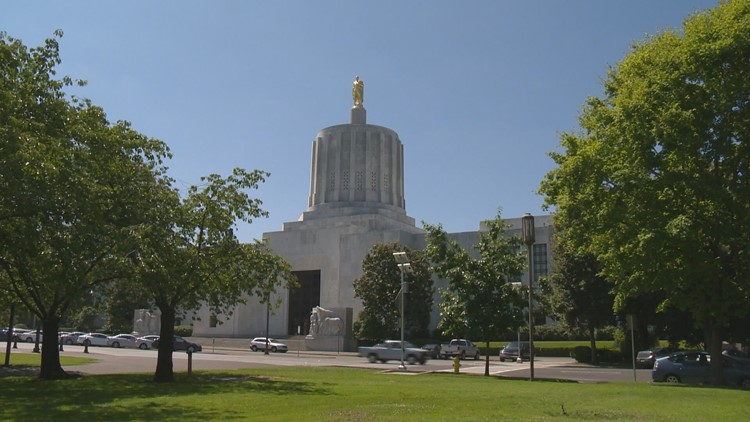SALEM, Ore. — Oregon economists presented a “shocking” and significantly improved revenue forecast Wednesday, which could leave the state's current budget nearly unscathed by the economic impacts of COVID-19.
Despite the forecast, which is $2 billion more than predicted in May, officials say that the “economic pain has yet to be fully reflected in Oregon's revenue data” and that future budgets will still likely face cuts.
“The substantial improvement in today’s revenue forecast highlights the uniqueness of a recession brought on by a global pandemic," House Speaker Tina Kotek, D-Portland, said. “While we are in a better financial position than we expected to be, it is still an unpredictable road ahead.”
Mark McMullen, the state economist, attributed much of the improved forecast to billions of dollars in federal aid, the CARES Act, personal income tax payments that were filed near the extended July deadline, corporate income taxes and lottery revenues.
McMullen said he was shocked by the increase in corporate tax collections, which could even trigger a “kicker"—a surplus in tax revenue that would provide additional funding for schools.
During Wednesday's presentation, Rep. E. Werner Reschke, R-Klamath Falls, reviewed charts that showed an increase in personal income tax collections and corporate tax collections from the previous years.
“If you were to lay (the charts) in front of somebody and told them that there was some sort of catastrophic economic pandemic event and asked them to pick where it was they wouldn’t be able to do it, because it just looks like things have continued as normal,” Reschke said.
In August, Oregon lawmakers held a special session to close the then-predicted $1 billion shortfall in the state budget. But, with the new revenue forecast Oregon could end the current two-year budget with a $1.7 billion “cushion.”
McMullen noted that this will likely not always be the case, however economists predict that the state's economy will recover sooner than initially expected.
While some lawmakers called the news a “success” others argued against the notion, specifically noting a disproportionate economic hardship on impoverished communities, people of color and rural cities and towns.
“I don't think this is a success,” said Sen. Lynn Findley, R-Vale. "I think we have damaged rural Oregon to a degree that I don't know if they will come back in the next three to five years.
McMullen noted that revenue numbers don’t fully reflect the financial inequality that Oregonians face.
“It’s clear that the federal stimulus is working to sustain families and businesses, and by extension, state revenues in the short term," House Republican Leader Christine Drazan, R-Canby, said. "This is encouraging news, but long term is another story as more than 150,000 Oregonians look for work and families and communities across the state are just beginning the difficult process of rebuilding and recovering from devastating wildfire losses."
____
Cline is a corps member for the Associated Press/Report for America Statehouse News Initiative. Report for America is a nonprofit national service program that places journalists in local newsrooms to report on undercovered issues.



